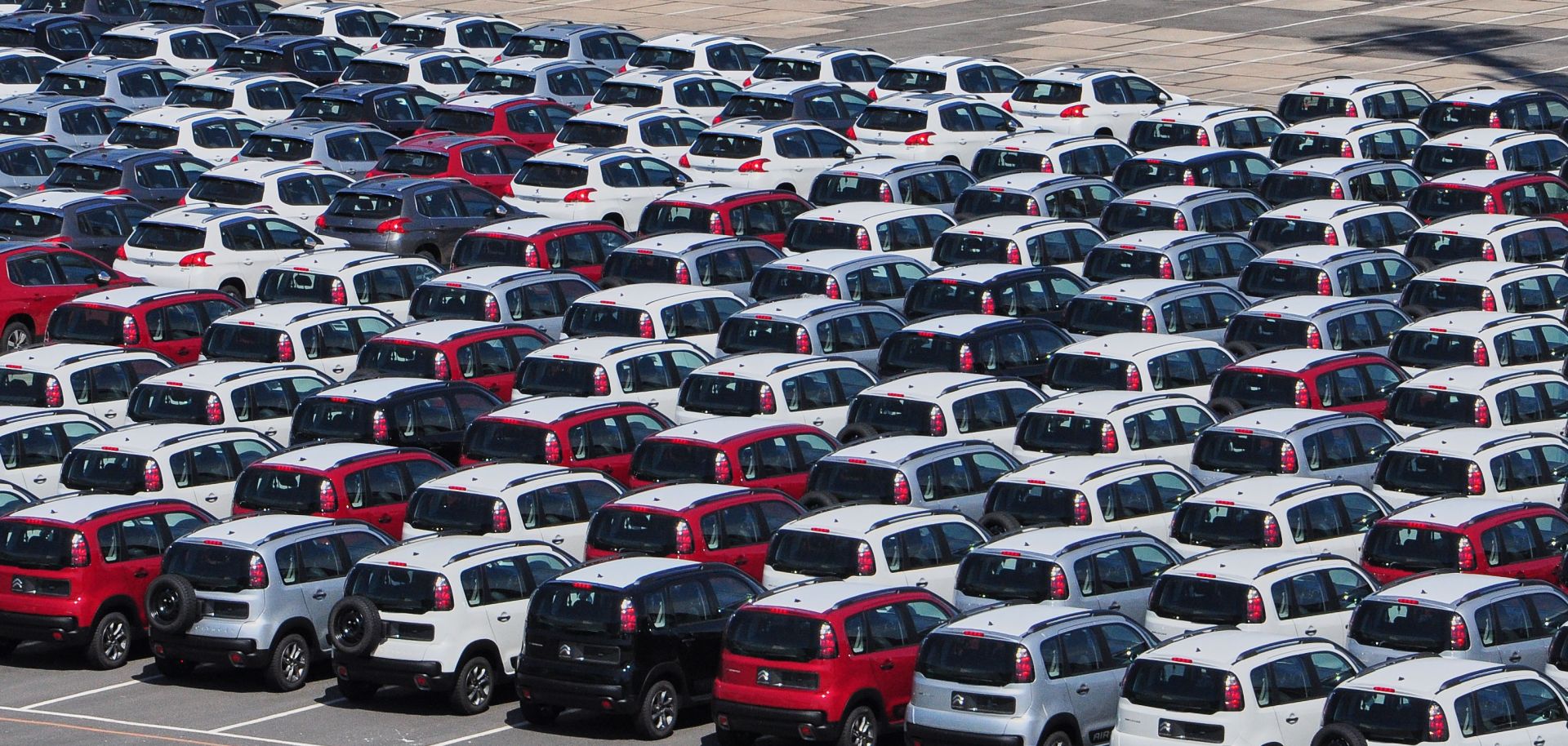ASSESSMENTS
Latin America's Auto Giants Strive to Secure Markets
Nov 12, 2018 | 11:00 GMT

New Peugeot and Citroen cars await shipment on the pier in Rio de Janeiro in February 2017. Brazil's auto sector is aiming to expand beyond its domestic market, while its counterparts in Mexico have secured continued access to the massive U.S. market.
(DENYS YELMANOV/Shutterstock)
Highlights
- Mexico's auto sector will remain oriented toward the United States, particularly in the wake of the signing of the United States-Mexico-Canada Agreement.
- Brazil will continue its quest to find new export markets, as Mexico did three decades ago.
- Brazil's incoming administration will try to persuade members of the Mercosur trading bloc to allow each member state to sign its own bilateral free trade agreements.
- If Brazil succeeds in lifting Mercosur's trade restrictions, the country's auto sector will target developing markets in Asia, Latin America and Africa, where Brazilian-made vehicles would be most competitive.
Subscribe Now
SubscribeAlready have an account?
